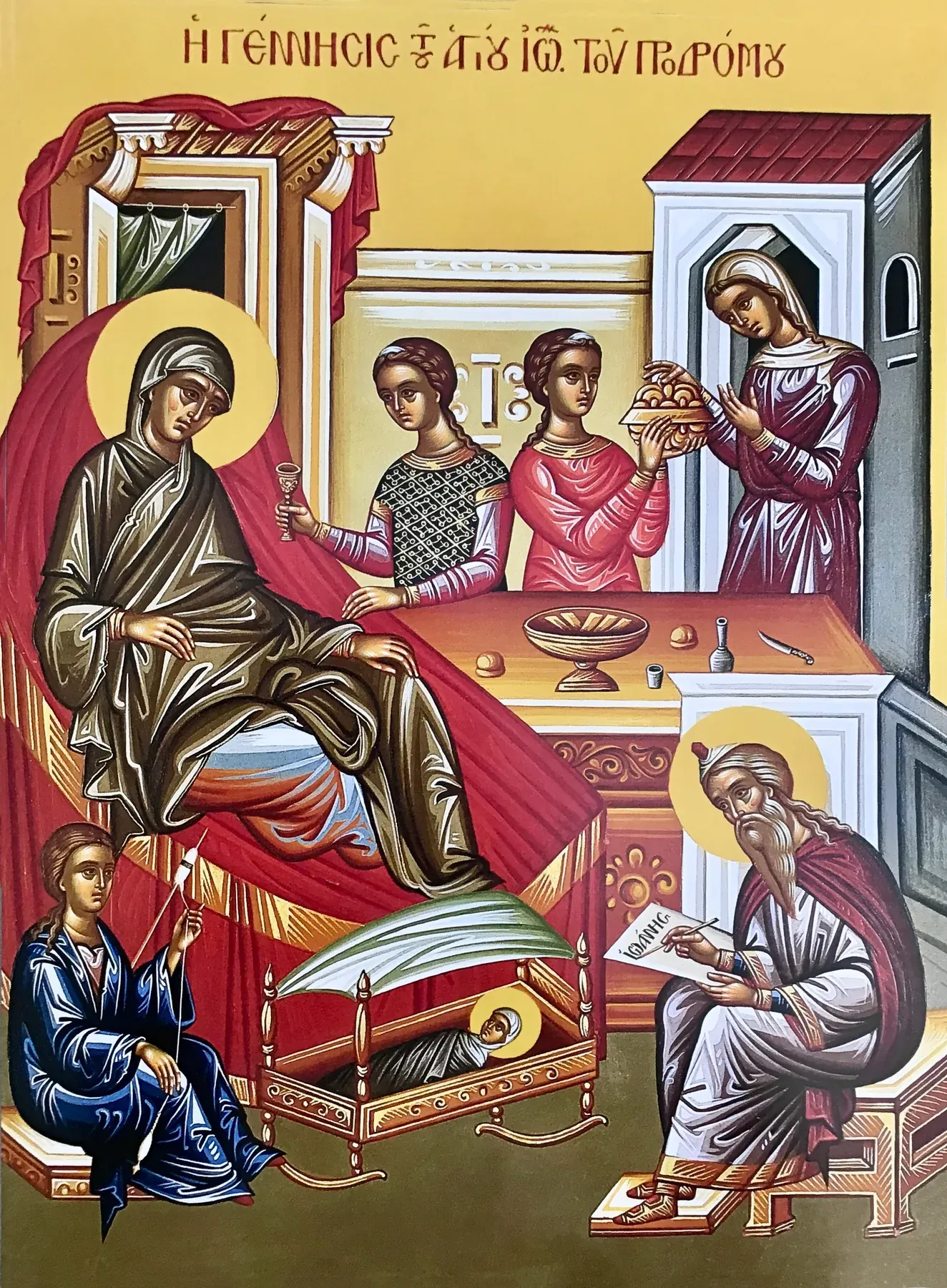Message of Abbot Paul - Thursday 23rd June
Abbot Paul • June 22, 2022

Message from Fr Paul for Thursday, 23rd June 2022
Because Friday is the feast of the Sacred Heart, that of the Nativity of St John the Baptist has been transferred from 24th to 23rd June. I find the transferring of feast days difficult to cope with, yet in the light of eternity it hardly matters. St John was conceived and born six months ahead of Jesus. Their mothers, Elizabeth and Mary, were kinswomen, second cousins perhaps, as Elizabeth was a good deal older than Mary. We can read all about their close relationship in the account of the Visitation, (Lk 1: 39-56), the passage previous to the one chosen for today’s feast. Throughout the ancient Christian world there are many traditions and customs associated with the birth of St John. It is undoubtedly one of my favourite feasts and mirrors the Nativity of Jesus, which we will celebrate in six months’ time.
Our Gospel comes from Luke, (Lk 1: 57-66, 80), who recounts all the details associated with John’s conception and birth. He tells us, “The time came for Elizabeth to have her child, and she gave birth to a son; and when her neighbours and relations heard that the Lord had shown her so great a kindness, they shared her joy.” In this short sentence alone, we find two of the major themes of Luke’s Gospel, the loving kindness of God and the joy of knowing the love that God has for each and every one of us. The friends and relations of Elizabeth share in her joy at the birth of a son. But what will this child be called? Will he be Zechariah like his father? That is what he would normally have been called, but his parents knew him to be a special gift from God and so would have a special name to mark that giftedness. “Now on the eighth day they came to circumcise the child; they were going to call him Zechariah after his father, but his mother spoke up. ‘No,’ she said ‘he is to be called John.’ They said to her, ‘But no one in your family has that name’, and made signs to his father to find out what he wanted him called. The father asked for a writing-tablet and wrote, ‘His name is John.’ And they were all astonished.” The name John means ‘graced by God’ or ‘God has been gracious.’
Elizabeth and Zechariah were, indeed, graced by God in the conception of John and God has continued to show his graciousness in the safe birth of the infant.
The story continues, “At that instant his power of speech returned and he spoke and praised God. All their neighbours were filled with awe and the whole affair was talked about throughout the hill country of Judaea. All those who heard of it treasured it in their hearts. ‘What will this child turn out to be?’ they wondered. And indeed, the hand of the Lord was with him. Meanwhile the child grew up and his spirit matured. And he lived out in the wilderness until the day he appeared openly to Israel.” Here we meet another characteristic of John and that is praise, which is closely linked with the awesomeness of God, which in turn is connected to the treasuring of God’s deeds in our hearts. Wonder and amazement are also linked to praise. We can see where the idea that God is a God of surprises originates. It’s here before our eyes. Just as Jesus has a hidden life until he is baptised by John in the Jordan, so too John has a hidden life in the wilderness until be begins to preach repentance openly and to baptise, at the same time preparing the way of the Lord, prophesying the coming of the Messiah.









